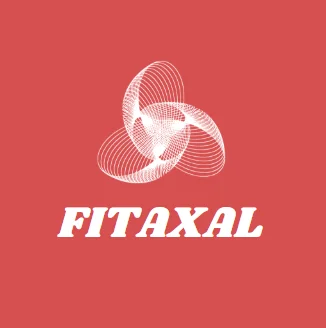Building muscle is not just about lifting weights; it’s a comprehensive process that involves understanding your body, your nutrition, and your training regimen. In this guide, we’ll explore the key strategies and techniques to help you build muscle effectively and efficiently. Whether you’re a beginner or an experienced lifter, these tips will help you maximize your muscle gains and achieve your fitness goals.
Understanding Muscle Growth
Muscle hypertrophy, the scientific term for muscle growth, occurs when muscle fibers are subjected to stress or resistance, leading to microscopic damage. This damage triggers a repair process, during which the muscle fibers grow back stronger and larger than before. Resistance training, such as weightlifting, is the most effective way to stimulate muscle growth. By progressively overloading your muscles with heavier weights or increased resistance, you can continue to challenge your muscles and promote ongoing growth.
Nutrition for Muscle Building
Proper nutrition is essential for supporting muscle growth and repair. Protein is the building block of muscle tissue, so it’s crucial to consume an adequate amount of protein-rich foods such as lean meats, poultry, fish, eggs, dairy products, and plant-based sources like tofu, lentils, and beans. For more comprehensive dietary tips and recipes that can help you achieve your nutritional goals, you can visit intrepidfood.eu. Aim for a protein intake of around 1.6-2.2 grams per kilogram of body weight per day to support muscle growth.
In addition to protein, carbohydrates are important for providing energy during workouts, while healthy fats support overall health and hormone production. Focus on consuming complex carbohydrates such as whole grains, fruits, and vegetables, as well as sources of healthy fats like avocados, nuts, seeds, and olive oil.
Effective Training Techniques
To maximize muscle growth, it’s essential to incorporate a variety of exercises into your training routine. Compound exercises, which involve multiple muscle groups and joints, are particularly effective for building overall muscle mass. Examples of compound exercises include squats, deadlifts, bench presses, and pull-ups.
In addition to compound movements, isolation exercises can be used to target specific muscle groups and address any muscle imbalances or weaknesses. Examples of isolation exercises include bicep curls, tricep extensions, and leg extensions.
Progressive Overload
Progressive overload is a fundamental principle of muscle growth that involves gradually increasing the demands placed on your muscles over time. This can be achieved by progressively increasing the weight lifted, the number of repetitions performed, or the intensity of your workouts. By consistently challenging your muscles with higher levels of resistance, you can stimulate ongoing muscle growth and adaptation.
Rest and Recovery
Rest and recovery are essential components of any muscle-building program. It’s during periods of rest that your muscles repair and grow stronger. Aim to get 7-9 hours of quality sleep each night to support optimal recovery. In addition to sleep, incorporating rest days into your training schedule allows your muscles to recover from intense workouts and reduces the risk of overtraining and injury.
Incorporating active recovery techniques such as gentle stretching, yoga, or low-intensity cardio can also help improve blood flow to your muscles, reduce muscle soreness, and enhance overall recovery.
Supplementation for Muscle Growth
While a balanced diet should provide most of the nutrients your body needs for muscle growth, supplements can be useful for filling any nutritional gaps or supporting your performance and recovery. Some of the most commonly used supplements for muscle building include:
- Protein powder: Convenient and easy to digest, protein powders can help ensure you’re meeting your daily protein needs, especially if you struggle to get enough protein from whole foods.
- Creatine: Creatine is a naturally occurring compound that helps provide energy for high-intensity exercise. It’s been shown to improve strength, power, and muscle mass when combined with resistance training.
- Branched-chain amino acids (BCAAs): BCAAs are essential amino acids that play a key role in muscle protein synthesis and recovery. Taking BCAA supplements before or during workouts can help reduce muscle breakdown and promote muscle growth.
Mind-Muscle Connection
Developing a strong mind-muscle connection is another key aspect of effective muscle building. This involves focusing on the muscle you’re working during each exercise and consciously contracting it throughout the movement. By establishing a strong mind-muscle connection, you can ensure that you’re maximizing muscle activation and recruitment, leading to better results from your workouts.
Hormonal Balance
Hormones play a significant role in muscle growth and recovery, so it’s essential to maintain hormonal balance for optimal results. Chronic stress, poor sleep, and inadequate nutrition can disrupt hormone levels and negatively impact muscle growth.
To support hormonal balance, prioritize stress management techniques such as meditation, deep breathing, and regular exercise. Aim to get enough sleep each night, as sleep is essential for hormone production and regulation. Finally, ensure you’re consuming a balanced diet that provides all the nutrients your body needs for optimal hormone function.
Tracking Progress
Tracking your progress is essential for staying motivated and making adjustments to your training and nutrition plan as needed. Some effective methods for tracking progress include:
- Keeping a workout log: Recording your workouts allows you to track your exercises, sets, reps, and weights lifted over time. This can help you identify patterns, track improvements, and ensure you’re consistently challenging yourself in the gym.
- Taking progress photos: Progress photos provide a visual representation of your body’s changes over time. Take photos from multiple angles and compare them regularly to see how your physique is evolving.
- Monitoring body composition: Tracking changes in your body composition, such as muscle mass, body fat percentage, and measurements, can provide valuable insights into your progress and help you adjust your approach accordingly.
Frequently Asked Questions
1. How long does it take to build muscle?
Building muscle is a gradual process that varies depending on factors like genetics, diet, training intensity, and consistency. Generally, noticeable improvements can be seen within a few weeks to a few months of consistent training.
2. What are the best exercises for muscle growth?
Compound exercises such as squats, deadlifts, bench presses, and pull-ups are highly effective for building overall muscle mass. Isolation exercises can also be used to target specific muscle groups.
3. How much protein do I need to build muscle?
The recommended protein intake for muscle building is around 1.6-2.2 grams per kilogram of body weight per day. However, individual protein needs may vary based on factors like activity level, age, and muscle mass.
4. Can you build muscle without weights?
While resistance training with weights is one of the most effective ways to build muscle, it is possible to build muscle using bodyweight exercises, resistance bands, or other forms of resistance training. However, progressive overload is still essential for stimulating muscle growth.
5. Are supplements necessary for building muscle?
While supplements can be beneficial for supporting muscle growth and recovery, they are not strictly necessary if you have a well-rounded diet that provides all the necessary nutrients. Supplements should be used as a complement to a balanced diet and proper training regimen.
Also Read: wellhealthorganic.com:Lemon-Juice-Know-Home-Remedies-Easily-Remove-Dark-Spots
Conclusion
Building muscle is a complex process that requires a combination of proper nutrition, effective training, adequate rest, and consistency. By implementing the tips and strategies outlined in this guide, you can optimize your muscle-building efforts and achieve the results you desire. Remember to focus on progressive overload, prioritize quality nutrition and recovery, and stay patient and consistent with your training. With dedication and perseverance, you can build the strong, muscular physique you’ve always wanted.





